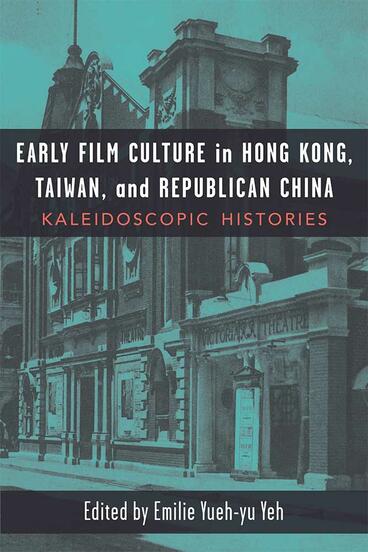Early Film Culture in Hong Kong, Taiwan, and Republican China
Kaleidoscopic Histories
A pathbreaking collection of essays on early Chinese-language cinema
Description
This volume features new work on cinema in early twentieth-century Hong Kong, Taiwan, and Republican China. Looking beyond relatively well-studied cities like Shanghai, these essays foreground cinema’s relationship with imperialism and colonialism and emphasize the rapid development of cinema as a sociocultural institution. These essays examine where films were screened; how cinema-going as a social activity adapted from and integrated with existing social norms and practices; the extent to which Cantonese opera and other regional performance traditions were models for the development of cinematic conventions; the role foreign films played in the development of cinema as an industry in the Republican era; and much more.
Emilie Yueh-yu Yeh is Lam Wong Yiu Wah Chair Professor of Visual Studies at Lingnan University, Hong Kong. She is the author of East Asian Screen Industries (BFI, with Darrell Davis), Taiwan Film Directors (Columbia University Press, with Darrell Davis) and editor of Chinese-language Film: Historiography, Poetics, Politics (University of Hawai’i Press, with Sheldon Lu).
Reviews
“This is scholarship at its best. Going to previously unexamined sources and extending the range of cities covered beyond Shanghai, this volume is likely to be a new watershed in studies of early Chinese-language cinema.”
—Chris Berry, King's College, London
"Highly original and groundbreaking archival research conducted by top scholars in the field. These new discoveries and angles reconfigure the conceptual framework within which Chinese cinema is understood. In short, we need this book urgently!"
—Victor Fan, King's College, London

